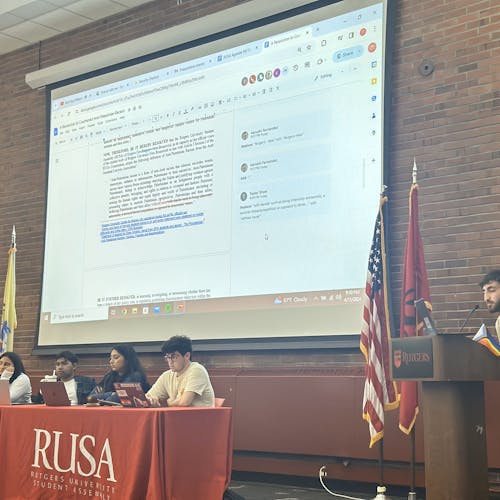Workers with disabilities face unique challenges amid pandemic, Rutgers study finds

The Rutgers Program for Disability Research recently conducted an academic report titled “Fact Sheet on Disability and Telework During the Pandemic,” which details the employment issues that people with disabilities are currently facing.
Before the coronavirus disease (COVID-19) pandemic, workers with disabilities were found to be more likely than those without disabilities to work from home, with 5.5 percent and 4.4 percent doing so respectively, according to the report.
But now, workers with disabilities are less likely than those without disabilities to be doing home-based work, according to the report.
In May 2020, 25.7 percent of workers with disabilities were working at home in comparison to 35.8 percent of workers without disabilities, according to the report. This gap narrowed over the course of a year but did not close fully, with 12.7 percent of workers with disabilities reportedly working at home compared to 14.5 percent of workers without disabilities.
Lisa Schur, co-director of the Rutgers Program for Disability Research, said people with disabilities who are working tend to be occupied in jobs that are not easy to work remotely, such as service jobs.
“If you ask people with disabilities who aren’t working whether they would prefer to be working … a majority of them say that yes, they would prefer to be working,” Schur said. “And in fact, they could be working … if the employer made some accommodations for them.”
Schur said employers often think that accommodations will be more expensive than they actually are. These accommodations could include raising a desk or having a more flexible schedule for someone with a disability.
Douglas Kruse, co-director of the Rutgers Program for Disability Research, said people with disabilities have especially low employment levels in general. Only 37.8 percent of non-institutionalized, working-age individuals with disabilities were employed in 2018, according to Cornell University’s Disability Statistics website.
“Even among those people who are employed, their pay rate is lower, and some of that appears to be due to discrimination,” he said. “They are less likely to have good career progress, to be promoted and to get training.”
So Ri Park, a first-year doctoral student at the School of Management and Labor Relations and one of the researchers for the report, discussed a field experiment that was conducted by Kruse and Schur to examine discrimination against people with disabilities.
In this experiment, falsified resumes were sent to employers to see if there was a difference in the rate of receiving interview requests between workers with disabilities and workers without, Park said.
She said that when a resume disclosed a disability, the rate of interview requests or job offers became significantly lower than when it was left undisclosed.
“But because now telework became more regarded as new normal … employers do not have that antipathy about employees not coming to the office,” Park said.
The report states that people with disabilities may benefit during the pandemic if employers rethink the structure of the workplace environment in a way that increases accommodations. Yana Rodgers, faculty director of the Center for Women and Work and one of the researchers for the report, discussed this finding.
“Attitudes (toward) telework have changed drastically, and now working from home is commonly accepted,” Rodgers said. “Many employers in positions of authority, the supervisors and the people making the hiring decisions are themselves working from home. They will be, I think, much less likely to resist giving that as an accommodation.”
Schur, Kruse and Rodgers will conduct additional studies for the new Rehabilitation Research and Training Center at Rutgers as part of a collaboration between the Rutgers Program for Disability Research, the Rutgers Business School and other universities and disability organizations to see how reshaping employers policies could help people with disabilities forward their careers, according to an article from the Rutgers Business School.
“It’s part of building a more inclusive culture in companies and in society as a whole,” Kruse said. “The Americans with Disabilities Act back in 1990 was premised on the idea that we need to be a more inclusive society to include people of all different types of abilities, and there’s been a lot of progress since then … But still, people with disabilities face really big problems, especially in employment, and so these kinds of policies can really help increase inclusiveness.”



